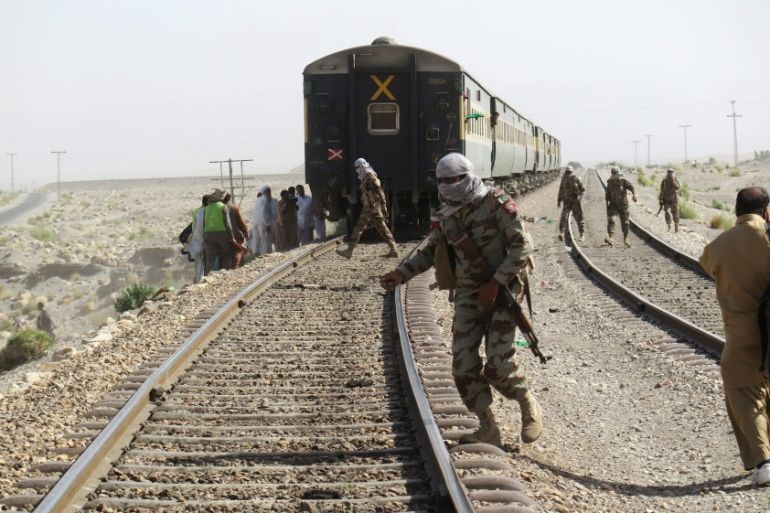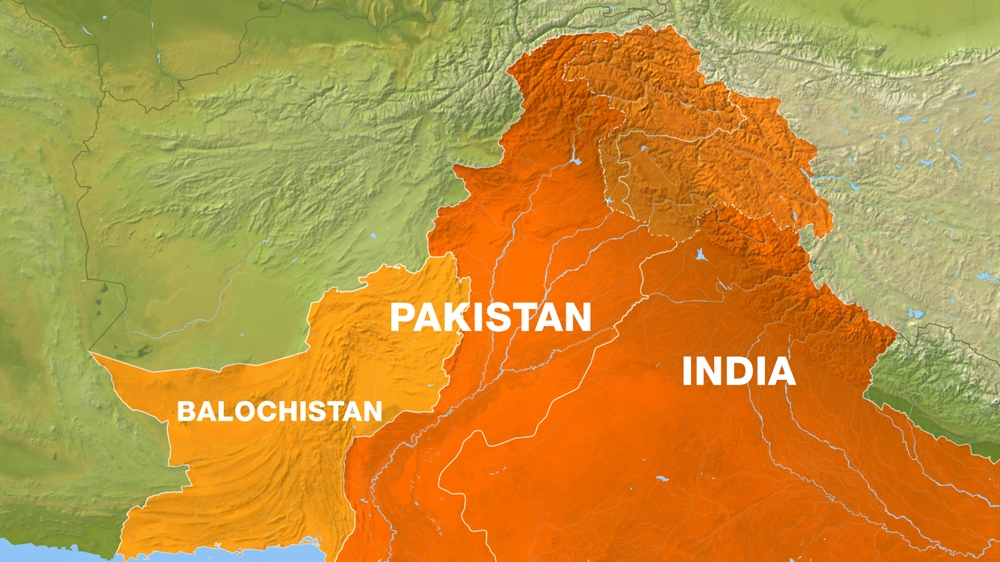Pakistan train bombing: Deaths in Balochistan attack
Separatist group said to claim responsibility for explosions that targeted train as it passed through restive province.

At least six people have been killed and 19 wounded after two explosions targeted a passenger train in Pakistan’s southwestern Balochistan province, according to officials.
Friday’s blasts hit the Rawalpindi-bound Jaffar Express as it passed near the village of Mach, about 65km southeast of the provincial capital of Quetta.
Keep reading
list of 4 itemsWhy are nations racing to buy weapons?
US Senate passes Ukraine, Israel, Taiwan bill; Biden to sign on Wednesday
Post-1948 order ‘at risk of decimation’ amid war in Gaza, Ukraine: Amnesty
“The explosions damaged two passenger carriages and killed six people besides wounding 19 others,” Imtiaz Ahmad, a senior local Pakistan Railways official, told AFP news agency, updating an earlier toll of three deaths.
The attack was claimed by the separatist Baloch Liberation Army (BLA), said the AFP report.
A spokesman for BLA said the bombing targeted “military personnel who travel to Rawalpindi by this train”.
Kashif Akhtar, a senior railways official, told Reuters news agency that security forces foiled a similar attack on Thursday after an attacker laid explosives on a railway track near Quetta.
‘An act of terrorism’
Khawaja Saad Rafique, Pakistan’s railway minister, denounced the bombing as “an act of terrorism” and said authorities were still trying to determine how the bomb was planted on the train.
For more than a decade, Balochistan has been the scene of low-intensity attacks by separatist groups who want autonomy or outright independence.
Attacks on infrastructure in Balochistan are a cause of concern for Pakistan’s neighbour and “all-weather” friend China.
READ MORE: BLF chief Baloch says Indian help ‘welcome’
China is investing $46bn in the China Pakistan Economic Corridor (CPEC) project, which aims to link western China to Pakistan’s Arabia Sea with a network of road, rail and energy pipelines. Many of the routes pass through Balochistan.
Last week Allah Nazar Baloch, head of the Balochistan Liberation Front (BLF), appealed for international help in his group’s fight against the state, including from India.
Baloch, speaking to Reuters from an undisclosed location, called the CPEC a Chinese “imperialistic scheme”, and pledged to attack roads, security personnel and construction crews associated with it.
Chinese fears
Frontier Works Organisation, the Pakistan army-run company building most of the CPEC roads in dangerous areas, says 44 workers have been killed and about 100 wounded in attacks on its CPEC sites over the past two years.
Government officials say security has improved and point to freshly paved CPEC roads, built at breakneck speed despite Balochistan’s rugged terrain, as proof of success.
To allay Chinese fears, Pakistan is also raising a force of 15,000 personnel, mainly serving army soldiers, to secure the corridor.
However, the separatists fear that indigenous Baluch people, who are estimated to number about seven million people out of Pakistan’s 190 million population, will become an ethnic minority in their ancestral lands if other groups flock to the region to work on exploiting its natural resources.
